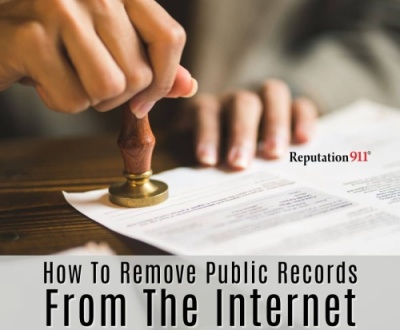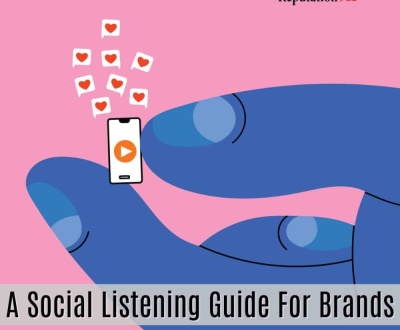The Dos and Don’ts of Social Media
- March 24, 2020
- Brand Management, Social Media For Business
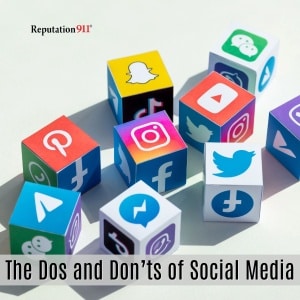
This post was most recently updated on April 1st, 2024.
Social media is a powerful way for brands to connect to their target audience. When used correctly, social media is an asset for both businesses and personal brands. However, social media mistakes can lead to severe reputation damage.
In this article, you will learn the 7 dos and donts of social media. We’ll also teach you how to implement social media best practices and avoid making mistakes.
How Can Social Media Affect A Brand
Social media can have major effects on your brand, for better or worse. Let’s look at some of the positive effects:
- Increase your brand awareness by creating engaging content that resonates with your target audience
- Improve your sales efforts and generate new leads
- Engage in customer service and generate positive reviews
- Improve the customer experience by creating a community around your brand
- Cultivate brand loyalty by creating valuable content
- Gain real time insights into the wants and needs of your customers
- Increase your website traffic by linking your website on social media channels
- Enhance your search engine optimization efforts with active profiles
- Get a higher return on investment through targeted social media marketing
- Manage reputation crises more effectively by communicating directly and transparently with your audience
- Understand what people think about your brand on social media with social listening tools
We’re going to put a caveat here: You will only see these benefits with a strong social media strategy. Social media can easily have negative consequences for your brand.
Social media is a double-edged sword, and negative comments, press, and online reviews spread like wildfire. Whether you are a business or personal brand, you need to know how to prevent and handle reputation crises.

Healthy Social Media Practices: “The Do’s”
To manage social media effectively, there are several things brands should do. Here are the 7 dos of social media:
Do: Enable privacy settings
Firstly, you need to understand how and when to use privacy settings on social networks.
Some personal information on a professional profile is fine. However, keep your personal and professional profiles completely separate from each other. Use a separate personal and professional email to register with. You don’t want to risk having an unprofessional or damaging post make you look bad.
For business or professional accounts, you want to make your posts public. That way, you can easily promote your brand and engage with others in your industry. Stick to posting content that is relevant to your industry here.
However, for personal accounts, we encourage you to keep them totally private. Make sure only your friends and family can see your posts and information.
Do: Think before you post
You must think a post through before you share it, even on your private social media profiles. Everything on the internet is permanent, especially with sites like the Wayback Machine.
Anyone with access to your posts could save, print, or screenshot anything they find. While you can request removal of negative content for certain things, the damage has already begun.
Before posting anything online, keep these in mind:
- How will other people react to this post? This includes friends, family, employers, and internet users at large. Certain posts might be funny to your friend group, however, if your grandmother or boss sees them, what would they think?
- Would others see your post as controversial? Will the post spark an argument in the comment section? A post that encourages healthy conversation is one thing. However, posts that lead to negative comments and fighting will damage your brand.
Do: Be selective of who you follow & who follows you
People wrongly assume that a high follower count and following a lot of accounts increases their social media presence. However, these numbers are useless if you aren’t engaging with the right people. You must be intentional.
Be careful about following spam accounts or spam accounts following you. These accounts often post fake articles, steal content, or try to hack into your account.
Be careful too about your own friends that follow you on social media. We all have that one friend that is likely to post something that you don’t want to associate yourself with. Someone tagging you in one inappropriate photo is enough to ruin your online reputation management efforts.
Do: Double check for spelling errors
This may seem like a minor issue, especially for informal posts. However, you should still check your spelling and grammar to ensure that your message gets across correctly. Employers, peers, and your general audience may see poor grammar as careless and lazy.
Re-read your posts to ensure that autocorrect didn’t unknowingly change your posts. Many websites show “autocorrect fails” that completely turn an ordinary conversation upside down.
Do: Be intentional with social media platforms
Especially for brands, it’s tempting to want to try every new social media platform. However, sometimes it is best to stick with what works and avoid stretching yourself too thin.
Every business and individual is different, so preferences for platforms vary. Focus on where your most engaged customers and audience members are. Quality content on platforms with engaged users always gives you the biggest returns.
Do: Post consistently
Susu Wong, owner of Tomo360, has this to say:
“Consistency in social media posting is important because customers will expect posts from the business they interact with consistently. For example, if you are a restaurant owner, and you always run a Wednesday Special menu on Instagram and Facebook, your followers will be looking for it and an excellent way to build up the engagement.”
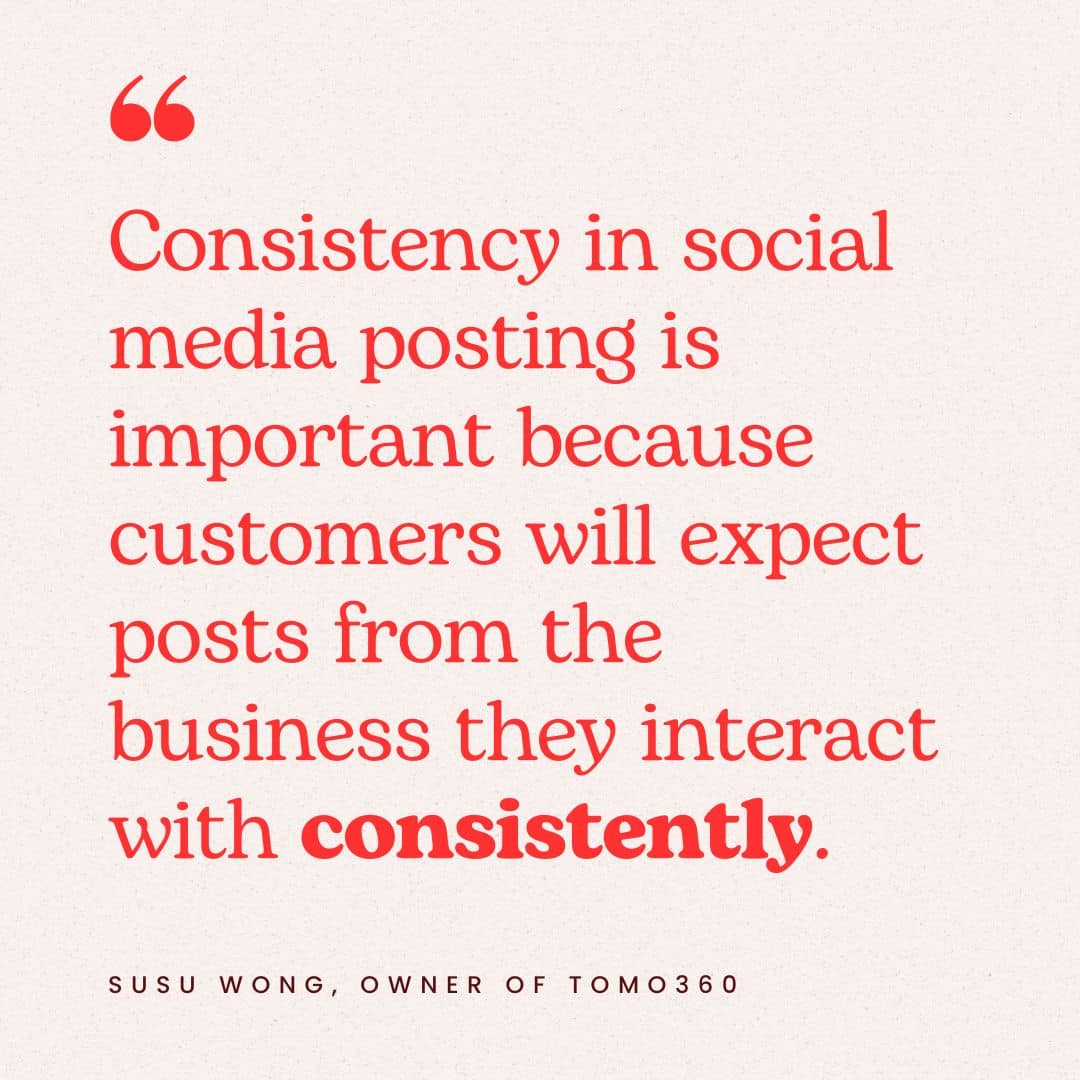
Do: Post images & Videos
People tend to prefer visuals over just plain text. Use images and videos as a supplement to the text on your social media posts. Platforms like Instagram, YouTube, Snapchat, and TikTok thrive on visual-heavy content instead of text-based. It keeps audiences engaged and helps you tell your story.
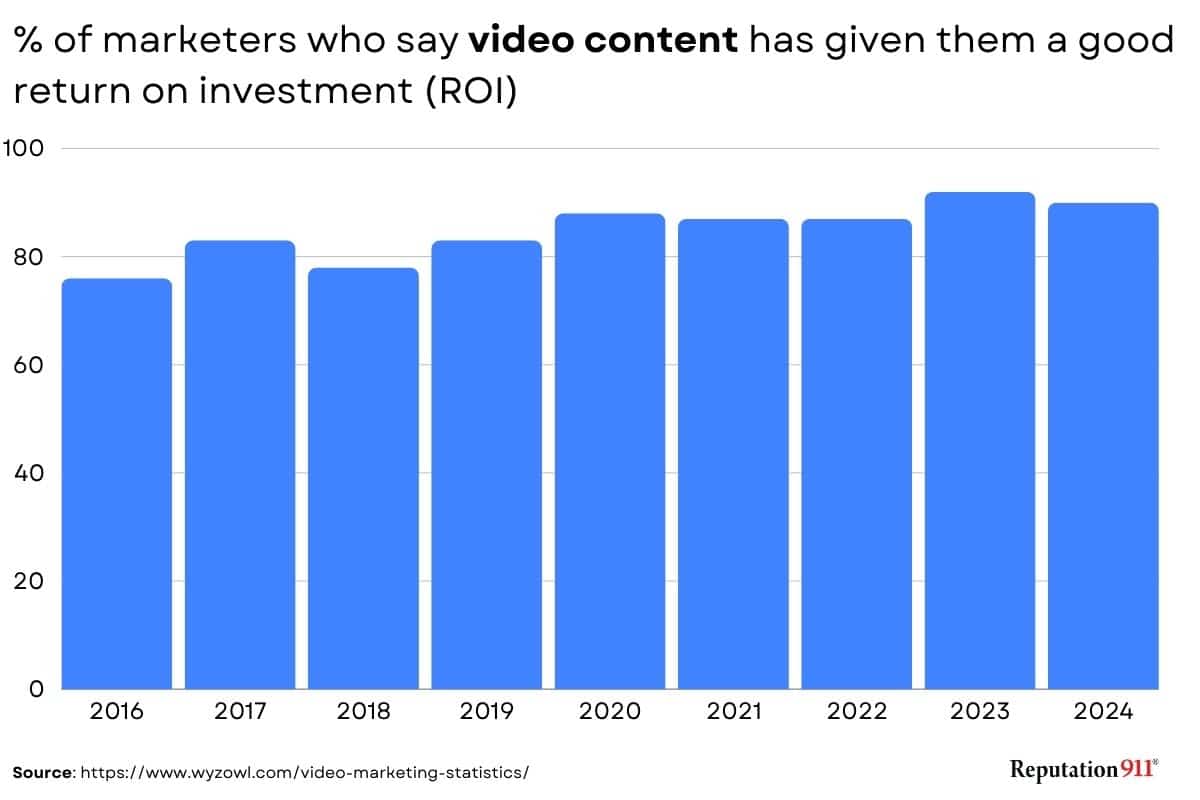
According to Wyzowl, the majority of marketers say that video content has given them a good return on investment (ROI). Incorporating video content into your marketing strategy can help your brand reach its goals.

The Don’ts Of Social Media
Just as there are things you should be doing when using social media, there are mistakes to avoid. Here are some things to not to do when posting on social media:
Don’t: Fight or argue on social media
People on the internet love to follow the drama, however, they follow it for the wrong reasons. Arguing online leaves an unattractive mark on your brand. This type of behavior does not impress potential employers, customers, or anyone looking to work with you.
Before jumping into an online argument, think about how to express yourself in a more professional manner.
Don’t: Overshare content
Consistent posting is effective, however there is a line between consistency and oversharing. Oversharing can actually drive social media users away. Instead, find the right post frequency for each platform.
Don’t: Misuse hashtags or trending topics
Using trending hashtags and topics correctly can make users notice you online. However, do your research before using a trending topic, hashtag, or keyword in your post. You need to understand why that particular topic is trending in the first place.
If the hashtag relates to a negative or unfortunate event, do not use it to promote your brand or make a joke.
In the past, we have seen big brands make this mistake, sometimes intentionally and other times unknowingly:

In 2011, Kenneth Cole posted this Tweet with “#Cairo”. The original purpose of this hashtag was to bring awareness to the protest going on in Cairo, Egypt at the time.

In 2014, DiGiorno Pizza posted this Tweet with “#WhyIStayed”. Originally, this hashtag brought awareness to domestic abuse after Ray Rice was charged for assaulting his fiancee.
Don’t: Be too salesy
Susu Wong, owner of Tomo360 says:
“People will turn away if a business is always selling on social media. It’s a good idea to mix it up with helpful and engaging content. Use the 80/20 rule; spend 80 percent of your efforts on quality content that is helpful and fun, and 20% on promotions”.
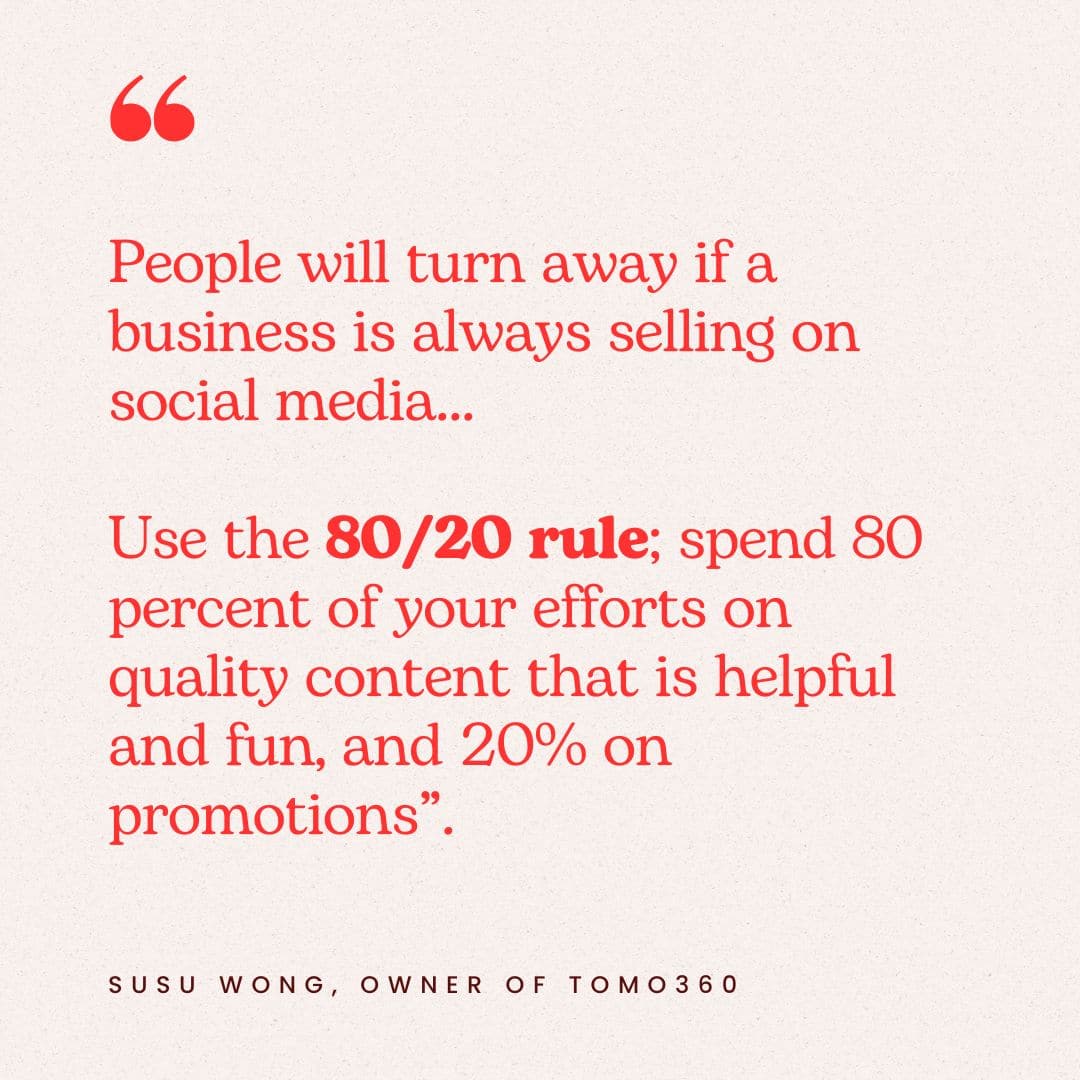
Don’t: Ignore your audience
The entire point of social media is to engage with your audience, so don’t ignore them! If users send any questions, comments, and messages to you on social media, be sure to address them promptly.
Don’t: Misuse emojis
Emojis are a great way to get your emotions across. However, certain emojis can have certain connotations. Before posting something that includes emojis, make sure the emoji actually means what you think it does. Many emojis can have dual meanings, particularly for younger audiences.
Don’t: Avoid it altogether
Having no online presence can be even more harmful than making one of the above mentioned mistakes. People use the internet to find information, resources, services, products, career opportunities, etc. If your information is not out there for them to find, they will simply move on to someone else.
Wrapping Up: Using The Do’s and Don’ts of Social Media
Social media has the power to create opportunities for individuals and brands. Equally, it can create chances for mistakes and failure. That’s why a social media reputation management strategy is essential.
Don’t allow these common social media mistakes to stop your brand’s success. By following these dos and don’ts of social media, you can promote your brand for the world to see.
If your online reputation is struggling, Reputation911 is here to help. We can remove and suppress unwanted search results, promote your personal brand online, and more. Contact us for a free consultation.
Visit our blog for more advice on how to repair and promote your online reputation.
About The Author
William DiAntonio is the Founder & CEO of Reputation911, a reputation management firm he founded in 2010 that has earned the trust of its clients for over a decade by helping individuals, businesses and brands control their online search results.
- William DiAntoniohttps://reputation911.com/author/william-diantonio/April 12, 2024
- William DiAntoniohttps://reputation911.com/author/william-diantonio/April 5, 2024
- William DiAntoniohttps://reputation911.com/author/william-diantonio/
- William DiAntoniohttps://reputation911.com/author/william-diantonio/March 18, 2024
Free Consultation
About Reputation911
We have helped thousands of individuals and businesses remove and suppress negative content and unwanted search results since 2010.







